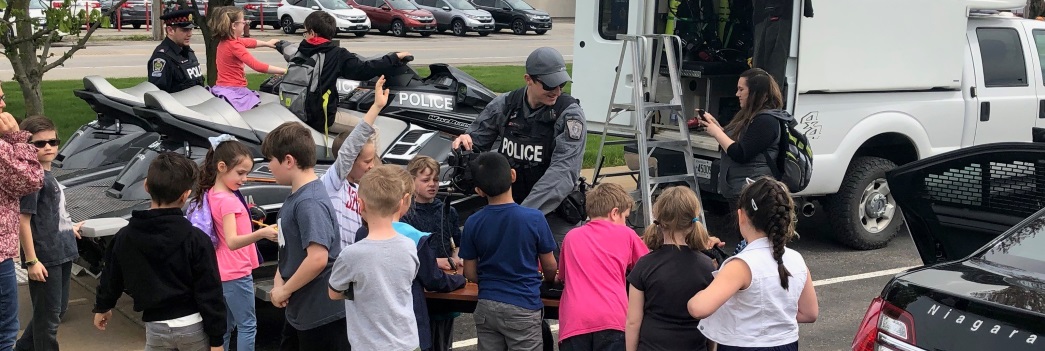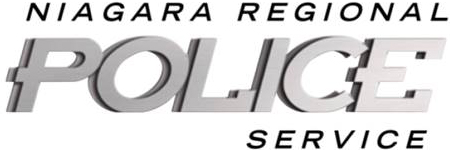
QUICK EXIT
SURVIVOR SUPPORT AGENCIES
Human trafficking is a pervasive and complex crime that poses a significant threat to public safety, affecting individuals across Canada, including right here in Niagara. The Niagara Regional Police Service (NRPS), alongside police services throughout Ontario and Canada, recognizes the urgent need for decisive action to combat this violation of human rights.
Human trafficking involves the recruitment, transportation, harboring, or control of individuals for the purpose of exploitation—usually through sexual exploitation or forced labor. This crime is hidden from public view and often goes unreported, which makes it incredibly difficult to fully assess its true scale. Despite this, human trafficking remains a serious concern that requires concerted efforts from law enforcement, communities, and support services to address.
The Impact of Human Trafficking in Canada
Human trafficking is an offence under both the Criminal Code of Canada and the Immigration and Refugee Protection Act. However, the extent of the problem remains difficult to measure due to its covert nature and the barriers faced by victims, including fear of coming forward and the manipulation tactics used by traffickers. Survivors of human trafficking include people of all races and genders, though women represent the majority in Canada.
Those most at risk of becoming victims include:
- Indigenous women and girls
- Migrant and newly arrived persons to Canada
- 2SLGBTQQIAI+
- Individuals living with disabilities
- Children in the child welfare system
- At-risk youth
- Socially or economically disadvantaged individuals
- Migrant workers, who are particularly vulnerable due to factors such as language barriers, isolation, limited access to services, and lack of information about their rights.
The Niagara Regional Police Service’s Commitment
The Niagara Regional Police Service is fully committed to tackling human trafficking within our community. Our dedicated officers work tirelessly to identify and assist survivors while holding offenders accountable for their actions. We recognize the need for a community-based and trauma led approaches and collaborate with a range of local, provincial, and federal partners to raise awareness, provide support, and engage in proactive prevention strategies.
As part of our efforts to combat human trafficking, we aim to:
- Support survivors through outreach and resources that help them regain safety and independence
- Raise public awareness about the signs and risks of human trafficking
- Improve training for law enforcement and community partners to better identify and respond to human trafficking situations
- Work closely with advocacy organizations to ensure survivors receive comprehensive support services
What You Can Do: Recognize the Signs, Take Action
Awareness is key in the fight against human trafficking. Understanding the warning signs can help you recognize when someone may be at risk and empower you to take action. If you suspect human trafficking is occurring or if you believe someone is in immediate danger, please contact the Niagara Regional Police Service or your local law enforcement agency.
| Too much? |
| Carrying new or expensive goods/cash beyond their financial means. |
| Being Controlled |
| Someone always seems to speak for them. The person doesn’t seem to be allowed to speak for themselves. When they do speak, their answers always seem scripted, evasive or rehearsed. |
| Appearance |
| Sudden change in appearance. Could include signs of drug use, or new and expensive changes in appearance. |
| Control of Property |
| Limited or no access to money, communications or ID documents. |
| Behaviour |
| Their behaviour may seem fearful, anxious, defensive and/or secretive. |
| Relationship Changes |
| A disconnection with family and past friends. A recent or new friend group and love interest. |
Resources and Support
If you or someone you know is a victim of human trafficking, support is available. The Niagara Regional Police Service is committed to providing resources, guidance, and protection to all victims. We are dedicated to ensuring that every individual has the opportunity to live free from exploitation and harm.
Support can be accessed with the assistance of the NRPS Human Trafficking Unit or independently by contacting the support organizations directly.
To gain access to supports you do not need to report trafficking incidents to police.
|
Centre de Santé Communautaire Hamilton/ Niagara
|
Ontario Native Women’s Association - Human Trafficking Crisis Worker 24/7 referral line: 1-800-667-0816 Provides support throughout the Niagara Region
|
|
Family and Children Services Niagara Region Telephone: 905- 937-7731 (1-888-937-7731)
|
Sexual Assault Domestic Violence Treatment Program
|
|
Gillian's Place Phone: 905-684-4000
|
Victim Services Niagara (VSN) Admin line: 905-688-4111 Prompt 3 ext. 1025084
|
|
Niagara Chapter Native Women
|
Victim/Witness Assistance Program (VWAP)
|
|
Niagara Regional Native Centre Phone: 905 688-6484 Email: ahws@nrnc.ca
|
Women’s Place of South Niagara (Birchway Niagara) Phone: 905-356-3933 ext. 232
|
|
Niagara Resource for Youth – RAFT Phone: 905-984-4365
|
YWCA Niagara Safer House – Home, to new beginnings
Niagara Region Email:home@ywcaniagararegion.ca
|
| Niagara Regional Police Service
Niagara Falls, ON Phone: 905-688-4111 ext. 1025121 |
Visit the Canadian Human Trafficking Hotline website to access a national directory of social services, education/awareness materials, as well as reports and research products.
If you or someone you know may be a victim, call Canada's national human trafficking hotline at: 1-833-900-1010.
For more information and awareness on Human Trafficking, please see the Kristen French Child Advocacy Centre website at the below link:
 I'd Like To
I'd Like To





 Subscribe to this Page
Subscribe to this Page